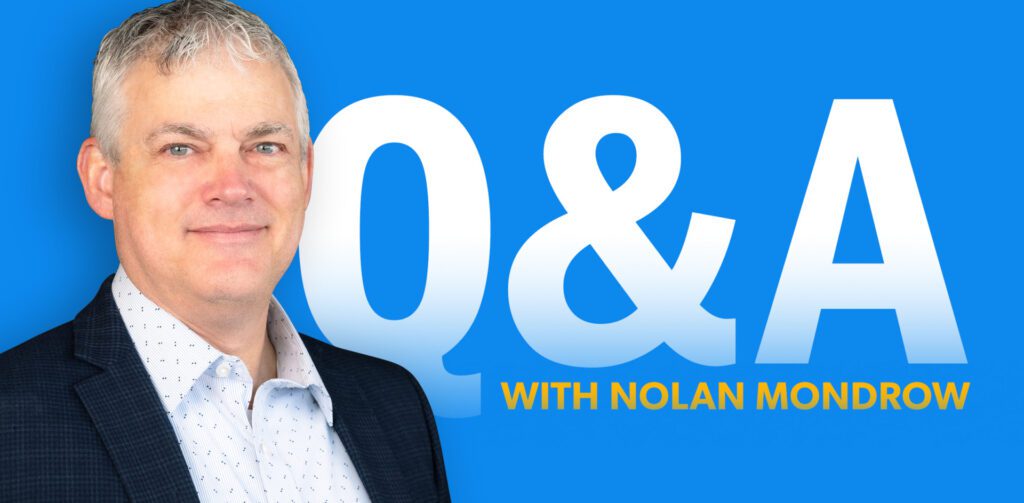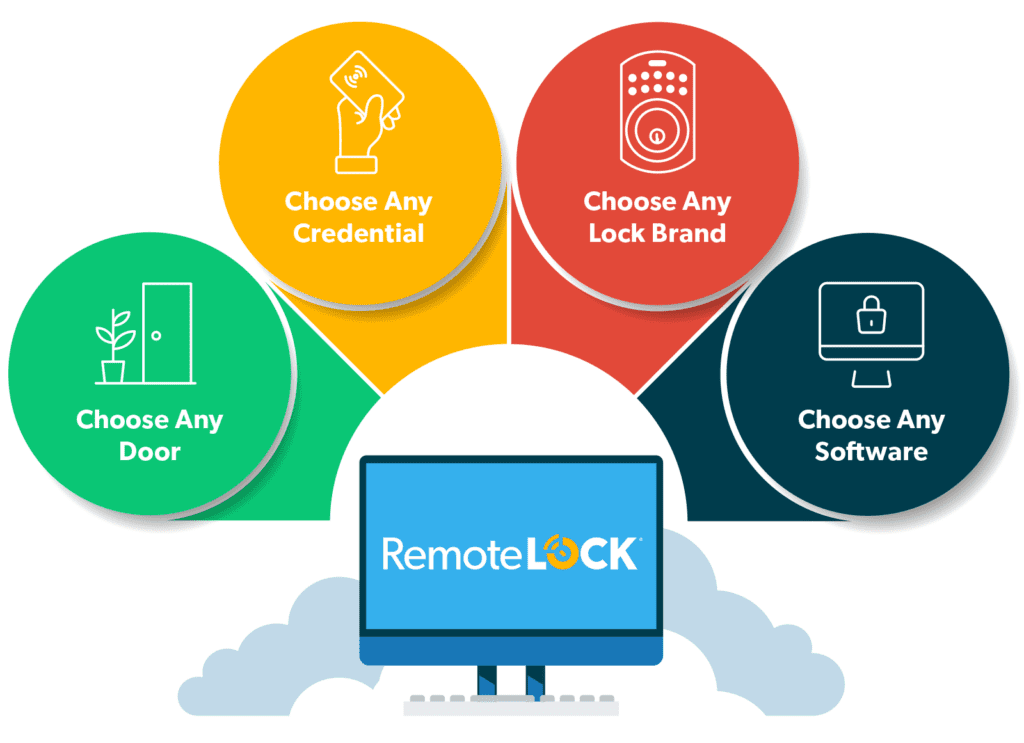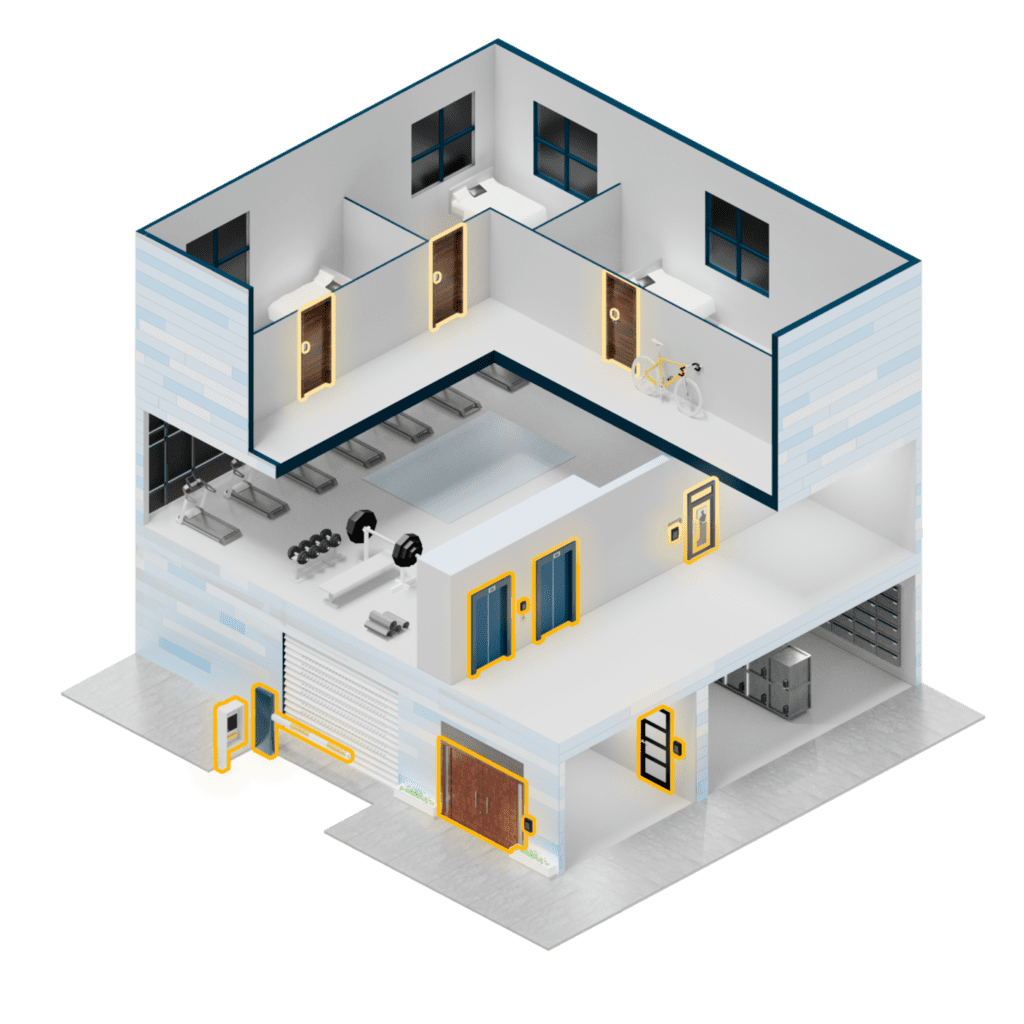Q&A with RemoteLock CEO, Nolan Mondrow

Q: Earlier this year you announced that RemoteLock raised $17.8 million in funding. What do you have planned for the next year?
RemoteLock is the first Universal Access Control Platform. This means we have our own core access control software, but it’s enhanced by our ever-expanding, business software and lock hardware partners. It’s this interconnected ecosystem that results in the most value for our customers, and we’ll continue expanding the lock and software choices our customers have in our key industries this year.
We are also putting some additional focus in selected industries like multifamily to show how the platform approach is the best way for property managers to have a future-proof access control system—one that’s always integrated with their preferred management software and door-locking hardware.
Q: Coming off almost two years of a pandemic, how do you think work environments have changed and how is the access control industry responding to these changes?
The easy answer to this question is that people are working remotely and quitting in large numbers. Both of these trends impacted how companies control who enters their places of business. This need to control access remotely has accelerated companies moving to cloud-based access control, which can be managed from anywhere, not just from the office. Access control vendors have responded to this trend by accelerating products to market that enable remote access.
For example, many companies and property managers are dealing with hybrid employees who either work 100% from home, partially from home or 100% in an office. To accommodate these very different profiles, you need flexible access control in a building to make sure the hybrid workers, for instance, can enter the office when necessary but not have 24/7 access.
Q: In looking at RemoteLock.com it’s impossible to miss that you control more hardware than the competition. Why is that such a big deal?

It’s a big deal because every door, elevator, building entrance, etc. can have different locking devices and different brands. Our ability to offer more brand options means that property and business managers will always have the perfect lock for each door in their building, not just one or two choices. They can choose based on brand preference, aesthetic, price point, durability, credentials used and more. Also, as a customer’s business expands into new offices, or as an apartment owner buys new buildings, they can control their entire portfolio from the same Remotelock cloud-based system. That’s why our solution is future proof.
Q: RemoteLock talks about providing a platform for access control. How is that different from just providing software that helps customers manage access?
A software platform is a core set of software features that are tightly integrated with other applications or hardware, which combine to offer customers a better solution.
In RemoteLock’s case, our core set of features is a full suite of access control functions like user interfaces, user permissions, door group control, holiday schedules, etc.. Then, we integrate our system with best-in-class locking hardware from companies like Schlage, Yale, Dormakaba, etc. Finally, we integrate with industry-specific software like property management software or popular booking platforms. The result is that customers get to use their preferred ERP software to manage both their business and their door access, no matter the door type.
Q: Per the above question, can you think of another platform in another industry that works similarly to RemoteLock?
A few that come to mind include Twilio, Stripe and Salesforce. Each of these has a core set of functionality, but their true value is only realized when they are integrated into other solutions. I would highlight Salesforce.com as a platform that has an approach similar to RemoteLock. This is because it has core CRM capabilities that can be used as an independent application, much like RemoteLock has capabilities that can be used as a stand-alone access control system. However, the real reason customers buy Salesforce is because it integrates seamlessly with their other software and it allows developers to use it as a platform for their own applications. Similarly, customers buy RemoteLock because of the key integrations with locking devices and business software and because developers can use our partner API or SDK to make their own applications.
Q: Many business functions have successfully migrated to the cloud. Why do you think it’s taken longer for physical access control to embrace cloud models?
I’ll start by saying that cloud-based access has finally arrived and adoption has become mainstream. However, as you point out, it did take longer for companies to move access control to the cloud than it did for them to move most of their other business software to the internet. There are a couple of reasons why cloud-based access control software has lagged.

First, unlike other business software, access control software is always coupled with a physical device like a door lock, an elevator control or a parking garage gate. Historically, dealers and integrators have made their money mostly on the installation and service of these hardware devices. Asking them to invest in training and certifications for cloud-based software and adjust their entire business model to support a SaaS model was a pretty tall order. The cloud-based movement really took off thanks to customers demanding it. This demand, along with the commoditization of hardware, has challenged dealers and integrators to learn how to spec, sell, install, service and support both the hardware and the software to remain competitive and profitable.
Second, while customers had come to trust the internet for things as sensitive as banking or stock trading, they were somewhat inexplicably reluctant to trust it for their physical access control. These arguably overstated fears over security and system outages likely resulted in slower early adoption.
As end-users gradually realized the huge benefits of a cloud-based system and the ability to control access to a building from anywhere in the world, demand increased. This, coupled with realization that the internet can be a secure and reliable utility resulted in the eventual acceptance of cloud-based systems.
Q: Dovetailing off the previous question, what do you forecast for this industry in the next five years?
I think the next five years are going to be all about interoperability. Gone are the days when customers would put up with entering the same data multiple times manually in different systems, and especially into different access control systems.
Additionally, cloud-based access systems will become the norm and we will see a spike in the use of mobile phones as a credential to open doors.
Q. Where is RemoteLock headed next?
We know that current and future customers want to control access from their own business software, and they want to be able to use the locking hardware of their choice without being restricted to a few options from a single access control system.
That is why, unsurprisingly, we have positioned Remotelock to lean into the customer demand for interoperability as we continue to accelerate adding more locking devices and more software onto our platform.
Interested in learning more about building an integrated technology platform for your building or portfolio? Universal access control from RemoteLock is a great place to start. Talk to an expert today.

Nolan Mondrow
CEO
With more than 25-plus years of experience in software, telecommunications, e-commerce and international trade sectors, Nolan Mondrow is RemoteLock’s CEO. He’s held executive and leadership positions in both startups and Fortune 50 companies throughout his career. After Nolan had a hand in pioneering the industry’s first Wi-Fi connected locks, he’s been leading the charge at RemoteLock, the industry leader in access-centered property operations.
